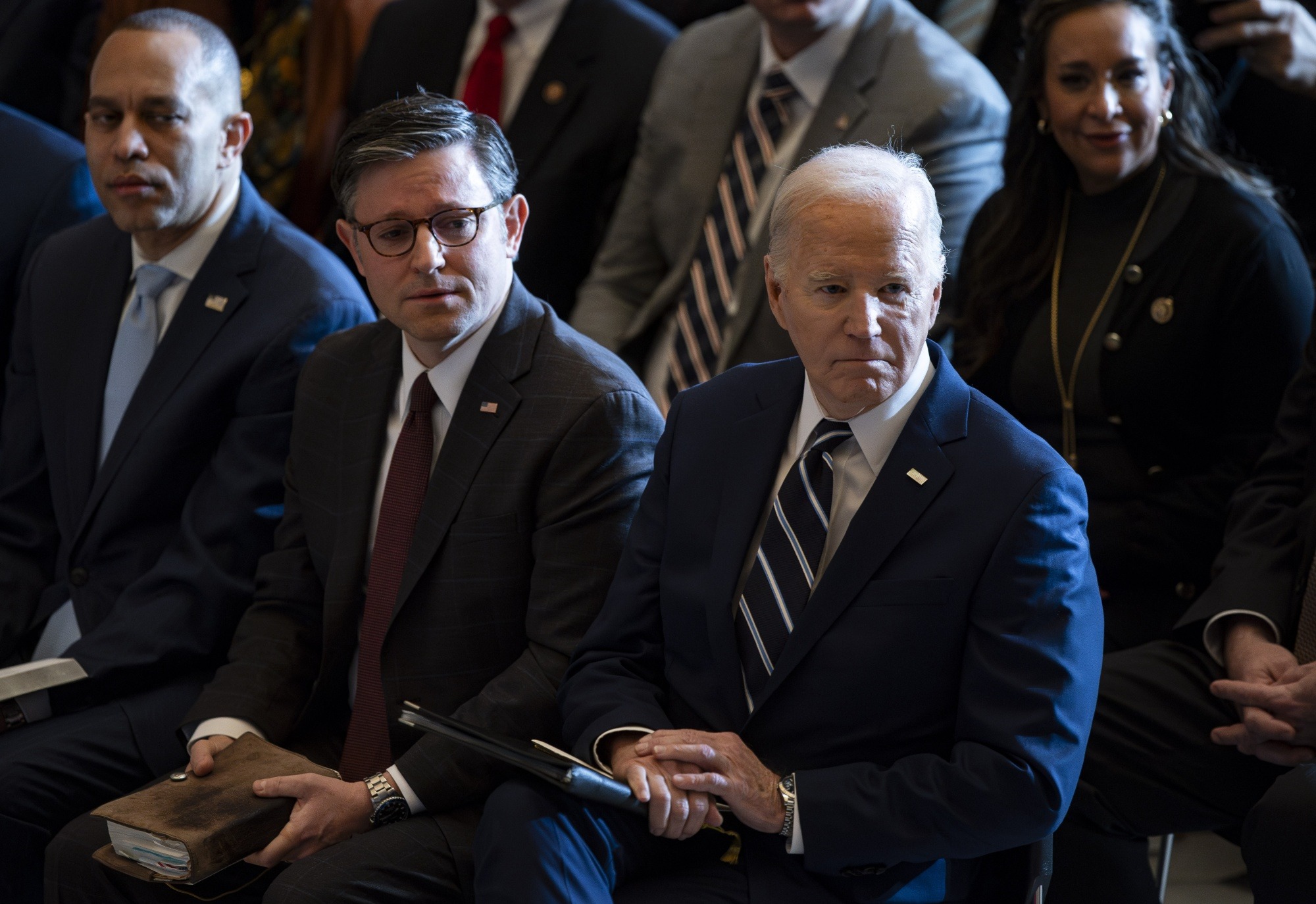The Biden administration and Congress are facing a challenging situation regarding policy changes and funding at the southern border. The administration is unable to implement new policies without additional funds, while House Republicans are reluctant to provide funding without significant changes to U.S. immigration policy.
Despite the Department of Homeland Security drafting potential unilateral actions, such as expediting deportation for some migrants, these plans have been put on hold due to a lack of manpower to implement them.
The administration originally requested just over $13 billion from Congress to bolster border resources, but after Republicans blocked a bipartisan Senate bill that would have impacted immigration and border policy, the national security package approved by the Senate did not include any border funding.

Biden With House Republicans (Credits: Bloomberg.com)
President Biden has been closely involved in discussions about border security, emphasizing the need for solutions that do not rely on Congress. However, with Congress controlling the purse strings, finding additional funding has proven challenging.
Immigration and Customs Enforcement (ICE) is forecasting a budget shortfall of over $500 million, which could impact key operations like deportation flights and detention by May if Congress does not provide additional funding.
There is a consensus within the administration that executive action is necessary to address the high number of migrant crossings at the southern border, especially after the failure of the bipartisan border deal in Congress. However, there are disagreements on the best approach between some in the White House and DHS.
While there is a possibility that border resources could be addressed in government funding bills expected to be taken up in early March, there are limits on how much funding Congress can appropriate.
House Republicans have been pushing for their partisan border security bill, HR2, which is unlikely to pass the Senate, further complicating the funding issue.
Biden could potentially reallocate funding from other agencies for border needs, but this could face legal challenges. The upcoming State of the Union address is expected to address the border and immigration, with the administration acknowledging the need for both messaging strategy and tangible action on the border.
A continuing resolution funding bill to keep border operations funded at current levels may not be sufficient to avoid budget shortfalls, requiring a significant boost in new funding to maintain core operations.























